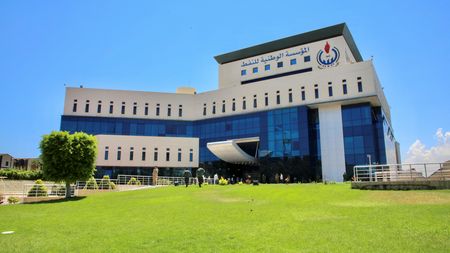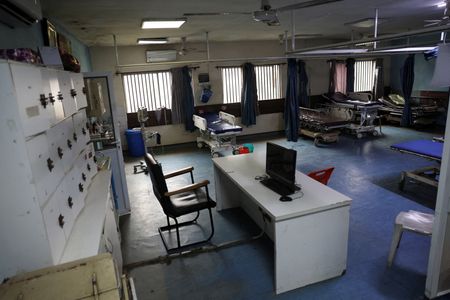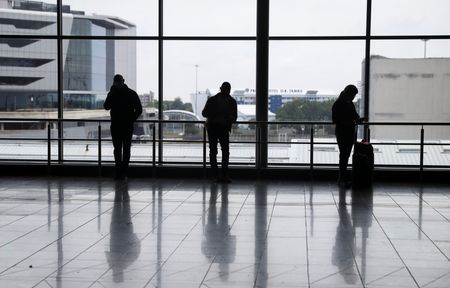CAIRO (Reuters) -Libya’s eastern-based government said on Wednesday it may announce a force majeure on oil fields and ports citing “repeated assaults on the National Oil Corporation (NOC).”
The government in Benghazi is not internationally recognised, but most oilfields in the major oil producing country are under the control of eastern Libyan military leader Khalifa Haftar.
The government said it may also temporarily relocate the national oil corporation’s headquarters to one of the “safe cities such as Ras Lanuf and Brega, both of which are controlled by the eastern-based government.
The NOC is currently located in Tripoli under the control of the internationally-recongized Government of National Unity (GNU).
The NOC denied in an earlier statement that the corporation’s headquarters was stormed deeming it as “completely false”.
It also emphasized it is operating normally “and continuing to perform its vital duties without interruption.”
The acting head of NOC Hussain Safar said that “what happened was nothing more than a limited personal dispute that occurred in the reception area and was immediately contained by administrative security personnel, without any impact on the corporation’s workflow or the safety of its employees.”
GNU’s media office posted video footage from inside the headquarters of the NOC showing “stable conditions and no signs of a storming or security disturbance.”
Libya’s oil output has been disrupted repeatedly in the chaotic decade since 2014 when the country divided between two rival authorities in the east and west following the NATO-backed uprising that toppled Muammar Gaddafi in 2011.
In August, Libya lost more than half of its oil production, about 700,000 bpd, and exports were halted at several ports as a standoff between rival political factions over the central bank threatened to end four years of relative peace.
The shutdowns lasted for over a month with production gradually resuming from early October.
The North African country’s crude oil production reached 1.3 million barrels per day in the last 24 hours, according to the NOC.
(Reporting by Jaidaa Taha, Ahmed Tolba and Ahmed Elumami; Editing by Alistair Bell)









